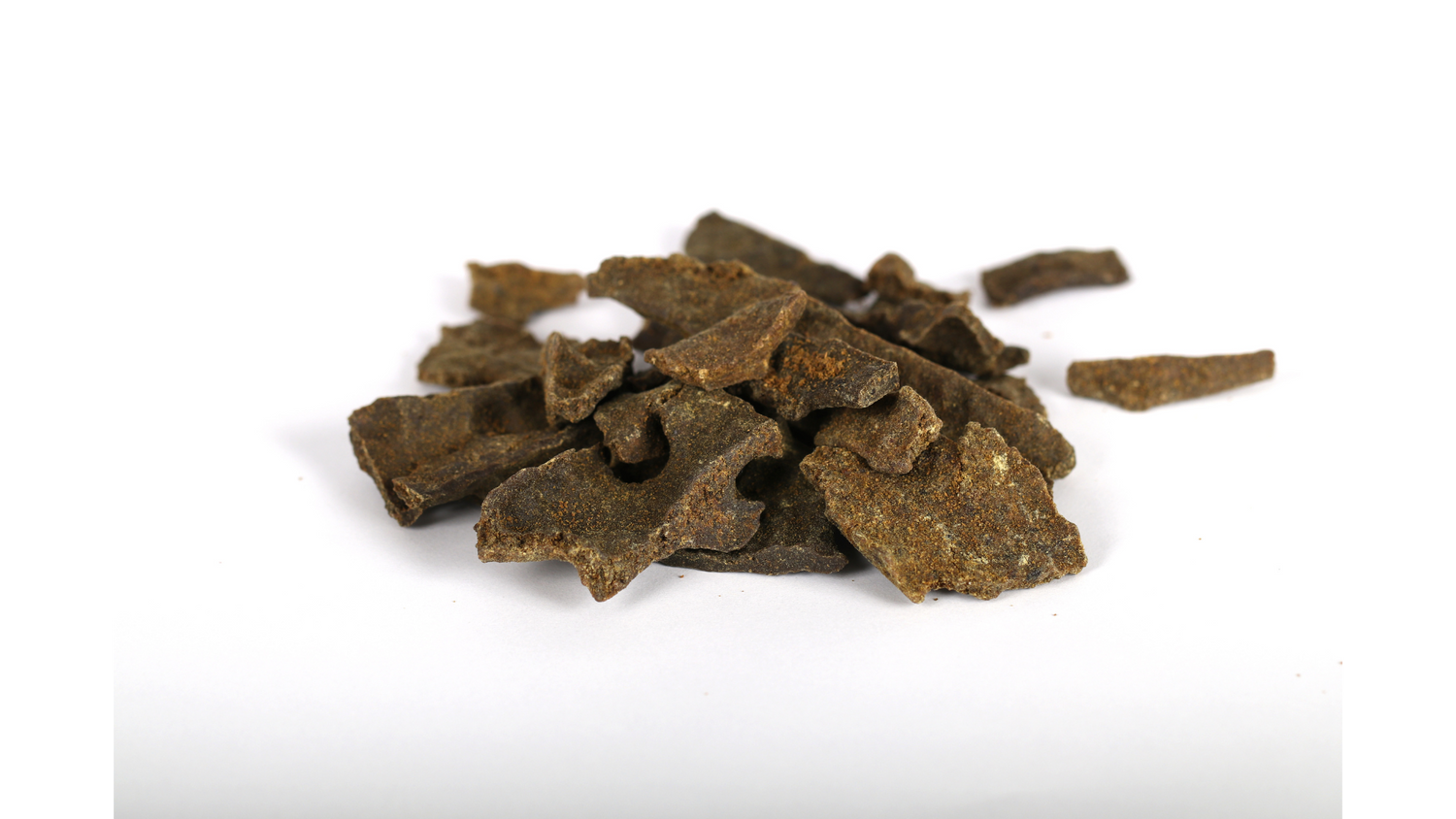30-year-aged Ginza Ryukando Green Propolis
■About this product
This product is carefully extracted from precious propolis lump that has been aged for a long time and inherited from Nakajima Natural Science Institute, and is the highest quality propolis rich in natural active ingredients. In recent years, the number of bees has been decreasing worldwide, although the cause is unknown. Currently, natural propolis cannot be obtained due to international treaties and prohibitions on its collection. This product uses rare lump collected from natural beehives that grew healthy in the wilds of Brazil. This product uses 100% lump collected from hives more than 30 years ago. Compared to propolis collected only from recent beehives, this is propolis that is more authentic and natural. Please try this product, which you can feel the difference because it is authentic.
■Product Features
It is made by carefully aging raw green propolis from Minas Gerais, Brazil. This product is made by diluting the original liquid by about 2.5 times to create a milder taste. It is characterized by being more luxuriously concentrated than regular products, and although it has a slightly pungent and unique taste and aroma, this is due to the original ingredients of propolis, and you can fully enjoy its value. This world-renowned propolis original liquid has been aged for 30 years to this day, and has been handed down to Ryukando Co., Ltd. along with the manufacturing technology, while keeping the high-quality ingredients intact.
In addition, the processing and manufacturing of this product is carried out under strict quality control, including safety testing, so you can use it with peace of mind in terms of quality.
■ Propolis has been protecting beehives for 42 million years
It is said that the action of propolis has allowed bees to maintain their ecology without any changes for approximately 42 million years, long before the birth of mankind. To protect themselves from the threat of pathogens in nature, bees gather protective substances produced by plants and synthesize them using their own enzymes, resulting in the powerful protective substance propolis. There are records that propolis was highly valued in ancient Egypt, and even in modern times, when medical science has advanced, it is highly regarded in Europe and the United States.
Among these propolis, Brazilian green propolis is said to be of particularly high quality. Brazilian honeybees evolved from a species brought over from Africa that crossbred with local species.
The African species is known for producing large amounts of propolis, but its hybrid (Western honeybee African species) also produces high-quality propolis by collecting active ingredients from the vast natural environment of Brazil. The hot and humid equatorial region is an environment where powerful viruses and bacteria can easily grow. This propolis has a strong antibacterial effect that allows the honeybees to protect themselves and their hives for decades or even centuries in harsh environments.
■About propolis
Propolis is a natural protective ingredient containing a wide variety of flavonoids that bees create by collecting special ingredients from various medicinal herbs and trees and mixing them with their own secretions to protect their hives from external enemies such as germs, viruses, and bacteria.
Propolis, also known by the Japanese name "bee fat," is a bee product processed by honeybees from the defensive substances and eco-maintenance substances of plants that bloom on the soil of the green country of Brazil, collected along with pollen.It is a precious, limited, purely natural substance that cannot be artificially increased in volume.
This product is a high-quality product made from the green propolis produced by the African species of honeybee, produced in Brazil, among the many types of propolis available. We are confident that you will be satisfied with this product as a health supplement for maintaining your health and for women's beauty.
■Reliable propolis ingredient ~Awarded the "Gold Award" at the International Beekeepers' Conference~
Nakajima Natural Science Laboratory was the first to introduce Brazilian propolis to Japan at the International Beekeepers Congress held in Nagoya in 1985, where it won the Gold Award. After that, Brazilian propolis was distributed in the Japanese market, and Nakajima Natural Science Laboratory became known as a pioneer of propolis. This world-renowned propolis has been aged for a long time and has been passed down to Ryukando Co., Ltd. with its high-quality active ingredients intact to this day.
On the other hand, beehives have been overharvested in the wild in Brazil, making it impossible to obtain such high-quality propolis made from rare raw materials extracted from natural beehives.
■The History of Nakajima Propolis
1984: First commercialization of Brazilian green propolis raw material in Japan
Nakajima Scientific Research Institute was established in October 1985. It won the gold medal at the 30th International Beekeeping Congress in Nagoya. At that time, several thousand samples were distributed.
1988: Launched propolis honey, an easy-to-ingest product made by mixing propolis and wax.
1989: Won the second gold medal at the 32nd International Beekeeping Conference in Brazil
1999: Succeeded in manufacturing refined propolis products using only beeswax collected from pure bees and flower pots.
October 2002 Nakajima Natural Science Institute Corporation established
2018~Ryukando Co., Ltd. inherited the remaining Nakajima Propolis and began producing propolis products.
Nakajima Natural Science Laboratory thoroughly pursues "healthiness." Propolis has a unique taste and aroma, so while many products contain "additives" to make it easier to drink, Nakajima Natural Science Laboratory considers the health of its consumers and does not use any external additives. Instead, it uses only the highest quality natural ingredients possible, so the taste and aroma are not strong.
Also, since the components of propolis do not always dissolve in water, they are extracted over time using alcohol, which is made from grains such as tapioca and corn using a brewing method similar to casting, and then distilled to remove impurities to a level of one part per million. This is Professor Nakajima's particular approach.
■ Propolis quality specification sheet



